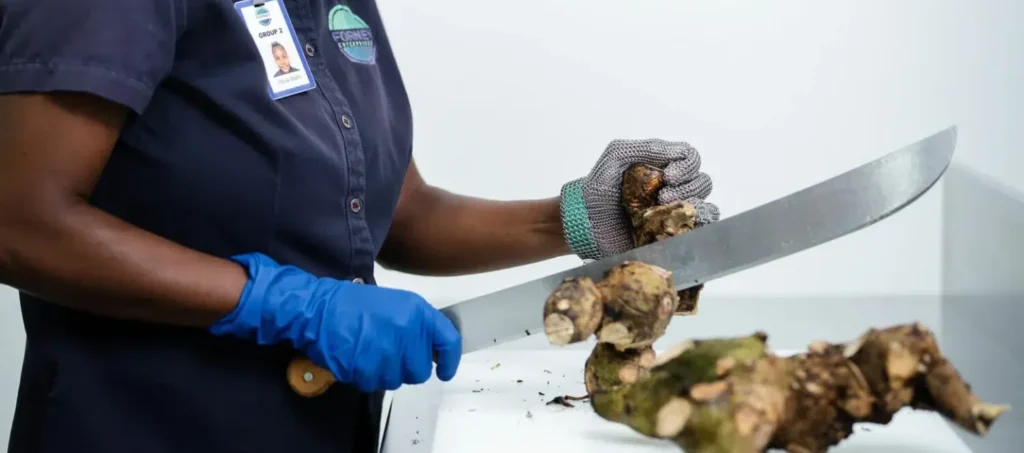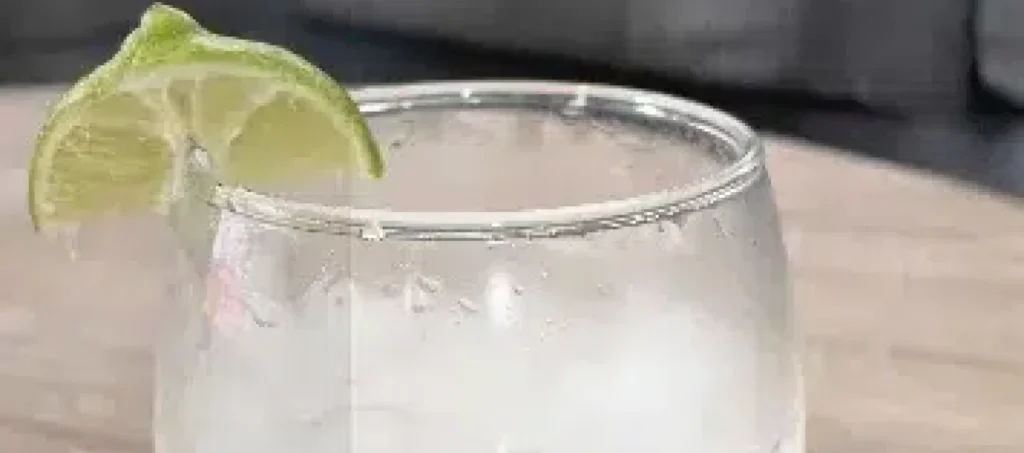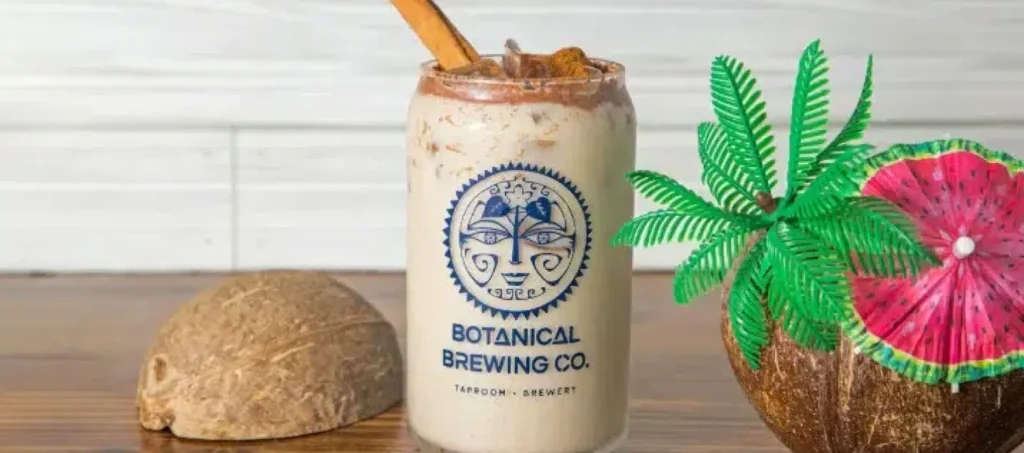
Instant Kava offers a modern twist on the traditional kava experience.
As you may already know, Traditional kava preparation is a time-honored process. As such, it’s one that involves manually grinding or pounding the kava root and then mixing it with water to extract its essence. This method, while authentic and deeply cultural, demands time and particular tools.
In contrast, Instant Kava simplifies the process. Because it’s crafted for convenience, Instant Kava allows enthusiasts to enjoy kava’s soothing effects without the labor-intensive preparation. The key difference lies in its ready-to-mix form, ensuring you can quickly incorporate this ancient tradition into your fast-paced lifestyle.
Whether derived from fresh green kava juice or micronized kava root, Instant Kava bridges the gap between the traditional ceremonial preparation and the modern need for ease and efficiency.
Instant Kava comes in various forms, notably those made from fresh green kava juice and others from micronized or nano-milled kava root. The source and processing method significantly affect the purity, taste, and efficacy.

Produced exclusively in Vanuatu, this variety uses freshly extracted kava juice. It maintains a closer profile to fresh kava beverage.

Micronized products, commonly produced in Fiji, involve finely grinding dry kava root into powder.
Choosing premium Instant Kava is crucial for achieving desired effects without adverse impacts. Here are reasons why quality matters:
Kava is traditionally used to make drinks by mixing kava powder with water or coconut milk. The aforesaid process usually takes about 10-15 minutes. Early kava adopters in the West quickly understood that the process of preparation would be seen as a hurdle for wider uptake.
Below, we discuss the pioneers who took the convenience model and developed Instant Kava products.
In 1993, Robert Woodruff introduced Instant Kava. As a professor at the University of Georgia, he had studied kava for years. Subsequently, he developed a method to extract kavalactones from kava root, mixing them with water. This resulted in a drinkable form of kava.
Woodruff patented his method in 1993. He marketed it under the name Instant Kava-Kava. The product became popular among students for its convenience. This was mainly because they could enjoy their kava without waiting for it to brew.

Woodruff’s process used alcohol to extract dried kava powder. This made it quick to drink but somewhat rough in taste. However, in 1998, James Armitage and a group of kava enthusiasts refined the method.
Armitage introduced an aqueous extraction technique. This method involved using water to extract Kava’s active compounds. Consequently, it resulted in a more soluble and refined powder, improving user experience.
This new approach made Instant Kava quick and easy to prepare. Consumers like yourself no longer needed extensive preparation time. You simply add a half teaspoon to water, stir for 10 seconds, and enjoy.
Armitage’s innovation quickly attracted a following because it offered a convenient solution for Kava enthusiasts. Instant Kava soon became popular, setting the stage for broader market acceptance. Jame’s went onto develop other aqueous extract products which lead onto the kava drinks boom in the early 2010’s.
He is still active in the kava space now, continuing to develop industry leading kava products.

John Fordham followed James Armitage’s pioneering efforts in developing Instant Kava. By focusing on the aqueous extract method, he ensured that the product could be produced on a large scale and available in the USA.
Fordham recognized the potential of Armitage’s aqueous extraction technique. This method preserved Kava’s beneficial compounds while making it more convenient for users. To top it off, Fordham introduced advanced extraction techniques, enhancing potency and flavor.
To broaden Instant Kava’s reach, Fordham focused on market strategies. He established partnerships and distribution channels throughout the USA. The result was that this made Instant Kava widely accessible, consequently meeting the growing demand for natural wellness products.
Fordham emphasized stringent quality control measures. Therefore, each batch of Instant Kava was tested for purity and potency. The end result was that this commitment ensured that consumers received a high-quality product consistently.
Instant Kava quickly gained popularity under Fordham’s leadership. Consumers appreciated the convenience and effectiveness of the product. You may be aware that Fordham’s marketing efforts highlighted Instant Kava as a healthier alternative to traditional relaxation methods.

Vanuatu has been at the forefront of Instant Kava development for several compelling reasons. The country’s traditional preparation methods and cultural practices offer unique insights into Kava’s potential.
Unbeknown to many (perhaps yourself also?), in Vanuatu, Kava is traditionally prepared using fresh green Kava juice. Accordingly, this method, passed down through generations, has been essential in understanding Kava’s properties. The use of fresh Kava juice allows for the preservation of its active compounds, offering a more potent and beneficial product.
Conversely, in Fiji and Tonga, Kava preparation primarily involves dried Kava root. For that reason, this difference in preparation methods means that these countries have less experience with aqueous extraction. Hence, the dried root method, while effective, does not offer the same level of potency and purity.
The traditional use of fresh green Kava juice in Vanuatu laid the groundwork for modern advancements in aqueous extraction. That being the case, researchers and developers in Vanuatu had a head start. Very simply – they understood the nuances of working with fresh Kava. And this knowledge was crucial in creating high-quality Instant Kava products.
To date, no other country outside Vanuatu produces aqueous extract Instant Kava. Vanuatu’s expertise and traditional practices have given it a significant advantage. Other nations have yet to develop similar capabilities. Therefore, Vanuatu remains the leader in this niche market.

If you love kava but can’t stand the bitterness, you’re in the right place. Kava, known for its relaxing properties, can be an acquired taste. However, with these six delicious recipes, you’ll be able to enjoy kava in new and exciting ways.

The PainKiller is perfect for those scorching days when you crave a refreshing and revitalizing drink.

Peanut butter and chocolate come together with kava to create a heavenly treat.

A Frozen Daiquiri combines sour and bitterness for a refreshing and mouth-puckering experience.

Perfect for coffee lovers, the Iced Kava Latte blends the robust flavors of coffee with the relaxing effects of kava.

A twist on the classic Piña Colada, the Kava Colada is both creamy and refreshing.
The above recipes are supplied by drinkroot.com and rootofhappiness.com
Stay updated on the latest kava news, exclusive product reviews, and special offers by subscribing to our newsletter.